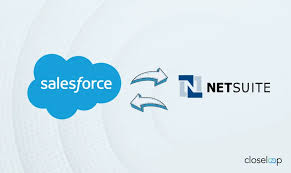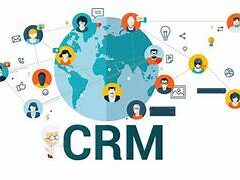NetSuite Bets on Strategic Growth and Embraces Collaboration with Salesforce
Growing on All Fronts
At SuiteWorld 2024, the theme, “All Systems Grow,” reflected a pivotal moment for NetSuite. While the event lacked groundbreaking announcements, it showcased a fulfillment of past promises and a notable strategic shift toward openness and collaboration. Oracle and NetSuite are now welcoming competitors as partners, signaling a move toward interoperability that could redefine their market positioning.
With over 40,000 customers, NetSuite continues its strong growth in the ERP space, particularly among SMBs. The company’s Q3 sales surged 20% year-over-year, underlining its momentum in the mid-market. Beyond traditional ERP capabilities, NetSuite’s expanded suite of solutions positions it as more than just an ERP provider.
Delivering on AI Innovations
While there were no splashy acquisitions, NetSuite made significant strides by rolling out 170 new modules and features, many leveraging AI. These enhancements blend predictive AI and generative AI to increase accuracy and user productivity.
- Predictive AI: Identifies anomalies in transactions and financial reports, such as unusual invoice patterns, alerting users to potential issues.
- Generative AI: Provides contextual explanations for anomalies using text and graphs, automates document updates, and assists with policy and process descriptions through its Text Enhance feature.
These updates aim to elevate both the platform’s quality and the efficiency of its users.
Redwood Design: A Transformative User Experience
NetSuite is adopting Oracle’s Redwood design language, promising a more intuitive and user-friendly interface. While Redwood is not new, its phased rollout within NetSuite is a significant step forward.
- The redesign emphasizes minimizing actions required to complete tasks.
- Full integration of Redwood will take another year or more, ensuring a comprehensive revamp.
Notable Additions: SuiteProcurement and Salesforce Integration
SuiteProcurement:
NetSuite’s new procurement automation solution integrates directly with Amazon Business and Staples Business Advantage, automating ordering, invoicing, approvals, and deliveries. Plans are underway to expand vendor support, offering broader applicability in the future.
Salesforce Partnership:
NetSuite’s most significant announcement was its strategic partnership with Salesforce, enabling real-time data exchange between the platforms.
- Historically, integration required custom development, but now NetSuite provides an out-of-the-box automated connection.
- This move is particularly noteworthy as NetSuite offers its own CRM solution, directly competing with Salesforce.
Evan Goldberg, NetSuite’s founder and EVP, explained the rationale:
“It’s up to the customer to decide what software they want to use.”
The partnership reflects NetSuite’s commitment to addressing customer needs, with more SaaS integrations expected in the future.
Expanding Field Service Management (FSM)
NetSuite’s Field Service Management (FSM) capabilities, acquired last year, are now better integrated into its platform. While development progress has been slower than anticipated, significant enhancements are expected in the coming year, leveraging Oracle technology to extend FSM’s functionality across industries. And Field Service Management is available in Salesforce, as well.
Positioned for Continued SMB Growth
NetSuite’s investments are yielding results, as demonstrated by its rapid growth and deeper integration of Oracle technology. The NetSuite Analytics Data Warehouse and Enterprise Performance Management are driving adoption among existing users, showcasing the platform’s scalability.
NetSuite’s ability to quickly integrate Oracle updates into its infrastructure gives it a competitive edge, ensuring customers benefit from the latest innovations without delays.
With its robust feature set, AI-powered tools, and strategic partnerships like the one with Salesforce, NetSuite has strengthened its position as a go-to ERP platform for SMBs. Its consistent 20% year-over-year growth indicates a bright future, making it an increasingly attractive option for mid-market businesses.
🔔🔔 Follow us on LinkedIn 🔔🔔










